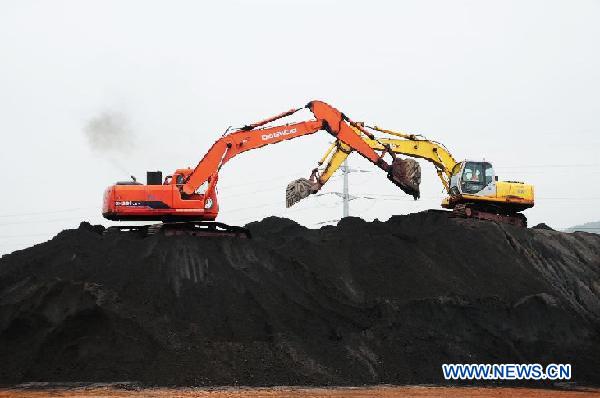
MOF: Tax reform won't affect oil price
Xinhua, October 25, 2011
-

Excavators remove iron ore at the port of Qingdao, a coastal city in east China's Shandong Province, Sept. 7, 2011. [Photo/Xinhua]
The reform of China's resource tax will not impact China's domestic prices for oil and natural gas, the Ministry of Finance (MOF) and the State Administration of Taxation said Monday.
China's pricing mechanism for oil products is mainly based on the international oil price trend, which would not be influenced by the adjustment of the sales-based tax rates, the two departments said in a joint statement issued on the MOF website.
The domestic oil price is more likely to be influenced by global factors, including international speculation, the exchange rate of the US dollar, and supply and demand in the global market, the statement said.
The State Council, or China's cabinet, announced earlier this month that resource taxes on domestic sales of crude oil and natural gas will be extended from a few of the country's regions to the entire nation starting from Nov 1.
After the adjustments, sales-based tax rates for oil and natural gas will also be raised between 5 and 10 percent, up from the previous 5 percent implemented in northwest China's Xinjiang Uygur autonomous region on June 1, 2010.
The sales-based resource tax for oil and gas was extended to 11 other provinces in December last year.
The adjustment in resource taxes might bring down the profits of oil producers, but it will not affect the market price of oil products or further burden oil refiners and consumers, said the statement.
Earlier this month, the Chinese government reduced retail prices for gasoline and diesel by 300 yuan (about $47) per tonne for the first time in 16 months amid stubbornly high inflation.
The statement said the government will also keep the market price of domestic natural gas products stable at 1,115 yuan per cubic kilometers.